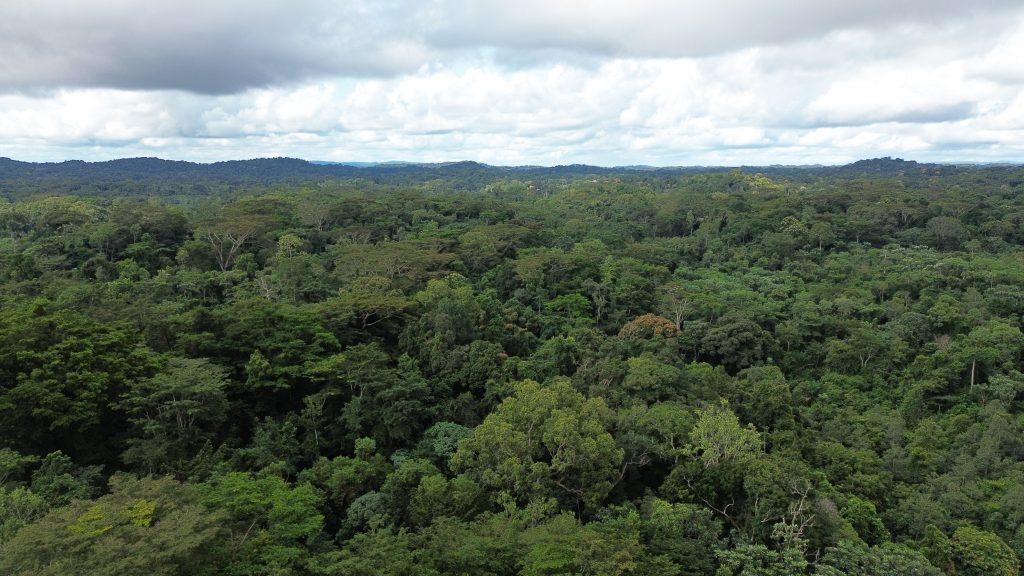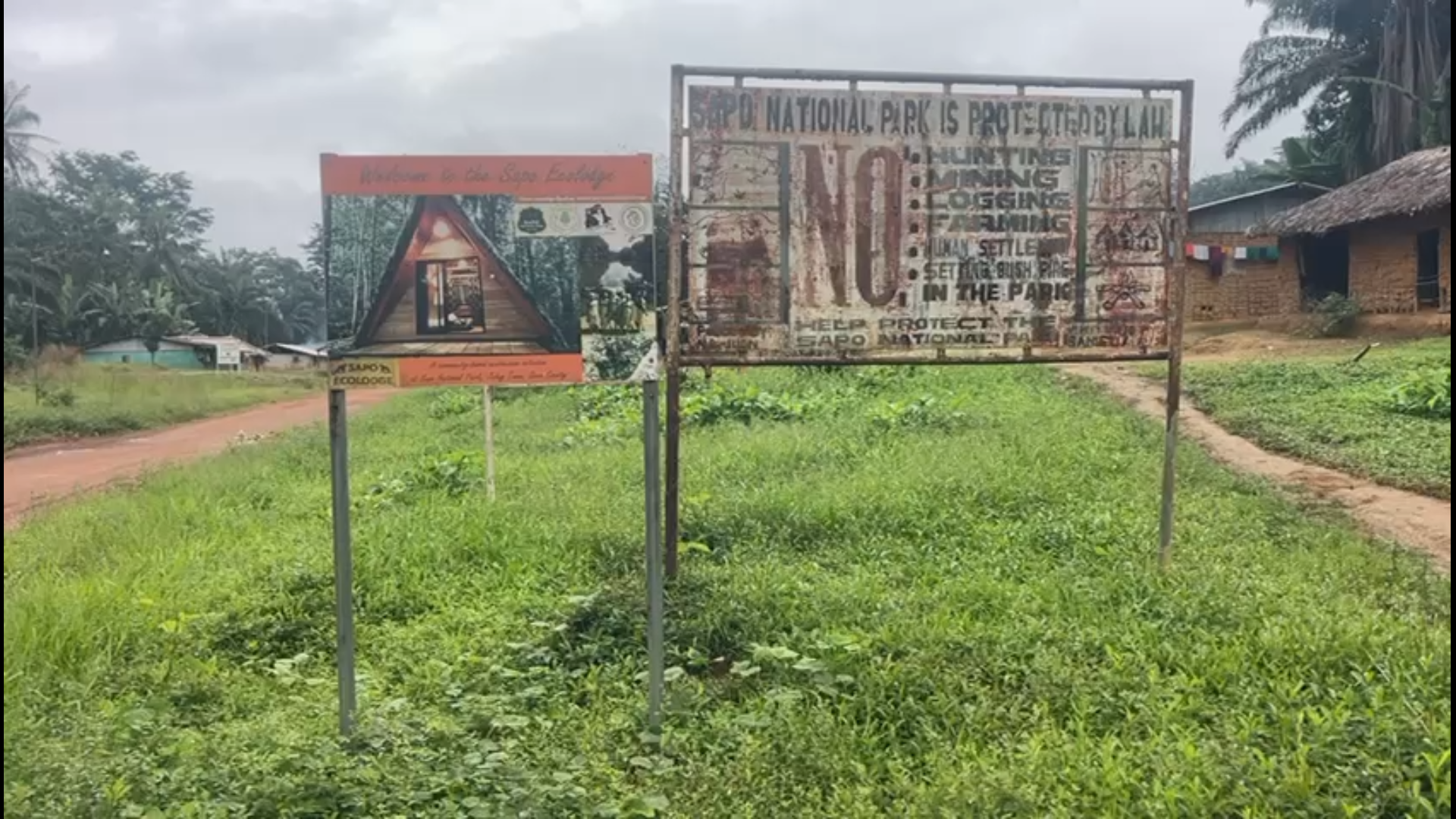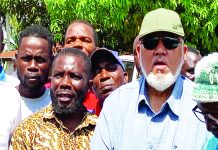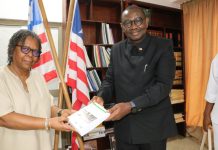Top: A Sapo National Park signboard in Cherue Town, Sinoe County. The DayLight/Carlucci Cooper
By Varney Kamara
JAYLAY TWON, Sinoe County – The government should arm 250 rangers to protect the Sapo National Park from illegal occupants, John Smith, the reserve’s Chief Warden, has said.
Spanning over 180,000 hectares across Grand Gedeh, River Gee, and Sinoe Counties, Sapo Park is Liberia’s largest natural reserve. However, only 30 law enforcement rangers man it.
“The size of the forest tells us that the number is insufficient to protect an area of this magnitude,” Smith told a DayLight interview in Jaylay Town, the rangers’ headquarters. “This has compelled the need to increase the force so that we can effectively deal with the situation on the ground.”
Established in 1983, the Sapo National Park is a global biodiversity hotspot, sheltering 125 mammal species and 590 bird species, including several endangered species. It is the second-largest rainforest in West Africa after the Tai National Forest in neighboring Ivory Coast.
However, the park faces environmental threats from illegal logging, agricultural expansion, and mining. There are 13 known illegal mining camps in the park, predominantly occupied by miners from the West African sub-region – Mali, Nigeria, Ivory Coast, and Guinea, the report found. A 2012 report found weak monitoring and poor boundary awareness among miners as key challenges.
In May 2017, a mob of local rioters killed a ranger and severely injured four others. It took armed anti-riot police to bring the situation under control.
Taylor Kaydee, an FDA-assigned ranger in Chebioh Town, the setting of the 2017 violence, said rangers were attacked often. About a year ago, he and other rangers were attacked after they arrested some illegal miners in the park. A court in Juarzon intervened for their handcuffs to be retrieved.

“How do you go to arrest somebody who has arms in a jungle terrain of this nature, but you, who are the law enforcer, don’t have arms?” Smith asked rhetorically. Smith added that it was impractical for unarmed rangers to protect the park against its illegal occupants, armed with single-barrelled guns.
Security actors have been critical of arming rangers for the two decades that followed since Liberia’s civil wars ended in 2003. Critics fear arming forest rangers could lead to abuse of power, violence, and undermine reform efforts.
Smith disagrees. He believes sufficient law enforcement rangers must be trained, armed, and deployed not to shoot people but perform their tasks in line with the law.
“It is a sustainable approach that speaks to the longstanding difficulties we face over the years. We need the manpower, training, and logistics to support our security plans and operations.”





Facebook Comments